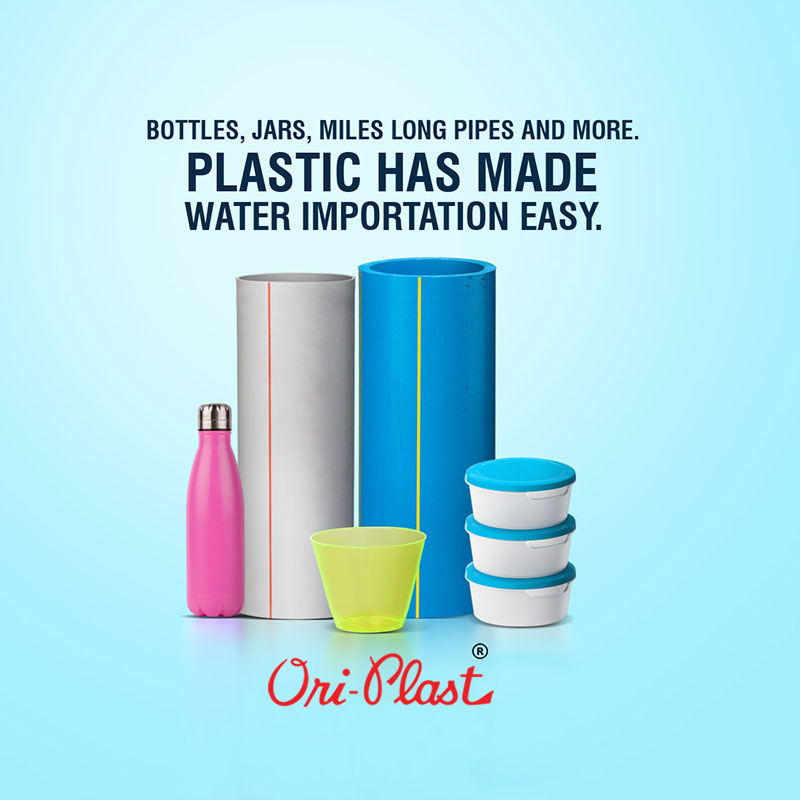Access to clean water is essential for everyone, yet billions of people around the world still face challenges in getting enough of it. Plastic pipes have become one of the most important materials in ensuring water is accessible, affordable, and safe. Here’s a breakdown of how plastic pipes help in making water easily available.
What Makes Plastics So Useful for Water Storage?
Plastic materials are lightweight, durable, and resistant to rust, making them ideal for storing water. From water tanks on rooftops to jerry cans used in rural areas, plastics have revolutionized how water is stored. Unlike traditional materials like metal or clay, plastic is less likely to crack, corrode, or leak, ensuring water stays clean and safe for longer periods.
Why Are Plastic Pipes Used in Water Transportation?
Pipes made from plastics like PVC (polyvinyl chloride) and HDPE (high-density polyethylene) have replaced old metal pipes in many places. Plastic pipes are easier to install, more affordable, and less prone to leaking or breaking. This makes them perfect for transporting water across long distances, even to remote areas. Plastic piping systems are also flexible, which means they can handle different terrains without easily cracking under pressure.
How Do Plastic Pipes Help During Water Emergencies?
During natural disasters or emergencies, access to clean water can be a lifesaver. Plastics play a huge role here, too. Plastic water bottles are lightweight and easy to transport, which makes them perfect for relief efforts. In addition, collapsible plastic containers can store large amounts of water and take up minimal space when not in use. Organizations around the world rely on plastic products to deliver clean drinking water to people in crisis situations.
Who Benefits the Most from Plastic Water Solutions?
Communities in developing countries are some of the biggest beneficiaries of plastic-based water solutions. For people living in rural or remote areas, affordable plastic tanks, pipes, and filters mean better access to water. Urban households also rely on plastics for water storage, especially in areas where water supply is intermittent. Farmers, too, use plastic pipes for irrigation, ensuring their crops get the water they need without wasting resources.
Where Are Plastics Making the Biggest Impact?
The impact of plastics on water accessibility is most visible in regions facing water scarcity or infrastructure challenges. In Africa and parts of Asia, for instance, plastic tanks are often used to collect and store rainwater, ensuring communities have water during dry seasons. Urban slums around the world benefit from plastic piping systems, which are easier to install and maintain in crowded areas.
What About Plastic in Water Filtration?
Clean water isn’t just about access—it’s also about safety. Plastics are a key component in water filtration systems. Portable plastic filters can be used by individuals or small communities to remove impurities, ensuring water is safe to drink. Larger filtration systems for urban water supplies often rely on plastic membranes to filter out contaminants. These systems are more affordable and efficient than alternatives, making them accessible to more people.
Why is Plastic Bottling So Popular?
Bottled water has become a common sight, and plastic is the material of choice for most bottles. It’s cheap to produce, easy to transport, and durable enough to protect the water inside from contamination. While there are environmental concerns with single-use plastics, efforts to recycle and use biodegradable materials are addressing these challenges. Bottled water also provides a lifeline in areas where tap water isn’t safe to drink.
How Do Plastics Support Sustainable Water Practices?
Plastics are often criticized for their environmental impact, but they also contribute to sustainability in water use. Drip irrigation systems made from plastic tubing allow farmers to use water more efficiently, reducing waste. Plastic-lined reservoirs help store water for agricultural or industrial use, preventing leaks and evaporation. Innovations in plastic technology are constantly improving water management systems to make them more eco-friendly.
Who is Innovating with Plastics and Water?
Many organizations and companies are working on new ways to use plastics in water solutions. Engineers are designing plastic-based desalination systems to turn seawater into drinking water. Scientists are developing biodegradable plastics to reduce waste while still providing the benefits of traditional materials. Nonprofits and governments are using affordable plastic solutions to bring clean water to communities in need.
What Are the Challenges with Plastics in Water Access?
Despite all their benefits, plastics come with challenges. Pollution from plastic waste is a major issue, especially in waterways. Single-use plastic bottles, in particular, contribute to this problem. Recycling rates need to improve, and more effort is needed to develop alternatives like biodegradable plastics. However, the advantages of plastics in making water accessible far outweigh these challenges when managed responsibly.
Why is Plastic Here to Stay in Water Solutions?
Plastics have become an irreplaceable part of water infrastructure. Their affordability, versatility, and durability make them essential for storing, transporting, and purifying water. As technology advances, we’re likely to see even more innovative ways plastics are used to ensure water is available to everyone, everywhere.
Plastics have transformed how people access water, from rural villages to bustling cities. While they’re not without issues, their role in solving global water challenges is undeniable. With proper management and innovation, plastics can continue to help the world achieve universal access to clean, safe water.


